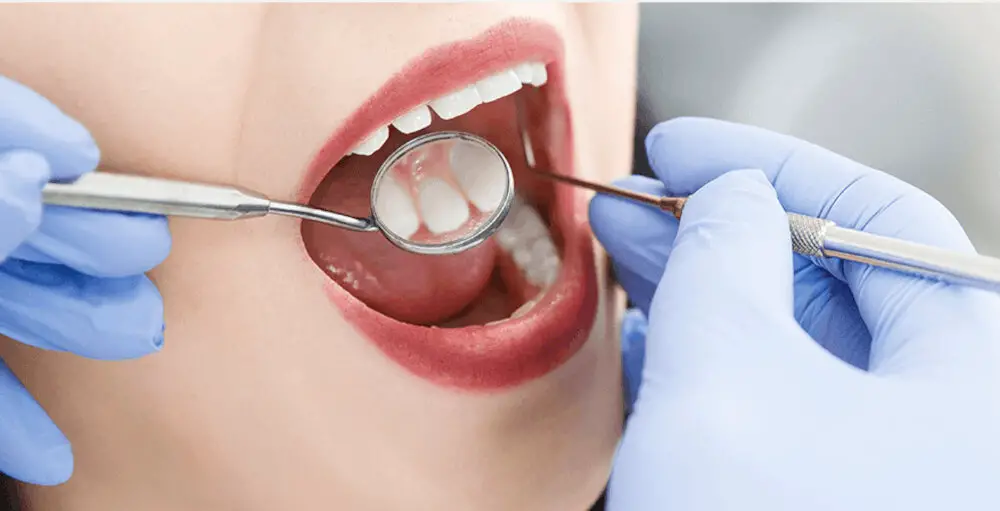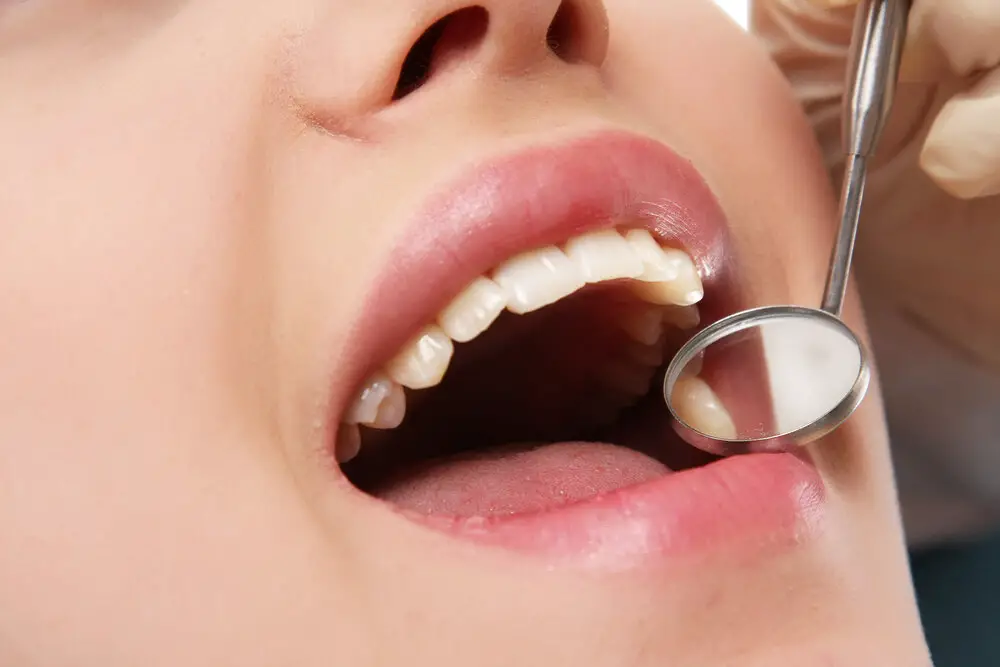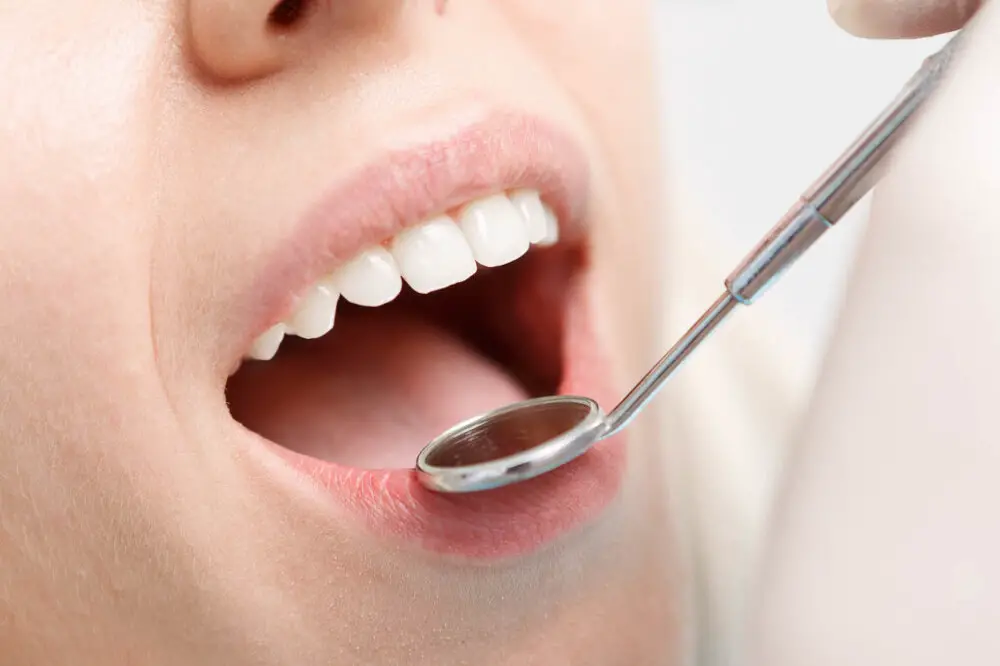Quick Recovery: How Long Will Swollen Cheeks Last After Wisdom Teeth Extraction?

Wisdom teeth extraction is a common dental procedure that many people undergo at some point in their lives. Although the procedure is relatively routine, it can still cause some discomfort and swelling, particularly in the cheeks. Swollen cheeks after wisdom teeth extraction can be a source of discomfort, and many people are curious about how long this swelling will last. Fortunately, there are a variety of factors that can impact how long swollen cheeks last after wisdom teeth extraction, and understanding these factors can help you take steps to promote a speedy recovery. One of the most significant factors that can impact how long swollen cheeks last after wisdom teeth extraction is the individual’s overall health and well-being. People who are in good health and have strong immune systems tend to heal more quickly and experience less swelling and discomfort after dental procedures. Additionally, factors such as age, genetics, and lifestyle can all play a role in the recovery process. By understanding these factors and taking steps to support your body’s natural healing processes, you can help minimize swelling and discomfort and promote a speedy recovery after wisdom teeth extraction.
Wisdom teeth extraction is a common dental procedure where the third molars, also known as wisdom teeth, are removed. These teeth often grow in during the late teenage years or early twenties and can cause a variety of dental issues if left untreated. The procedure is typically done under local anesthesia and can take anywhere from 30 minutes to an hour. Common side effects of wisdom teeth extraction include swelling and discomfort in the affected area, as well as difficulty opening the mouth and eating. It is important to carefully follow post-operative instructions provided by the dentist to ensure a quick and successful recovery.
Managing postoperative discomfort, including swollen cheeks, is crucial to ensure a quick and successful recovery after wisdom teeth extraction. Swelling and pain are common after oral surgery, and if not properly managed, they can lead to complications such as infection, bleeding, and delayed healing. Swelling can also cause discomfort and embarrassment, affecting the patient’s quality of life. Therefore, it is essential to follow the dentist’s instructions on pain management, rest, and diet to minimize swelling and promote healing. Applying ice packs, elevating the head, taking prescribed pain medications, and avoiding hard or hot foods are some effective ways to manage postoperative discomfort and reduce swelling. By taking these measures, patients can recover faster and return to their daily activities with confidence.
Factors Affecting Swelling

Swelling after wisdom teeth extraction is a common occurrence, and it is essential to understand the factors that affect it. One of the most significant factors affecting swelling is the surgical trauma caused during tooth extraction. The amount of trauma caused during surgery varies for each patient, depending on the complexity of the extraction procedure. As a result, some individuals may experience more swelling than others. Another factor that affects swelling is the patient’s age. Older patients often experience less swelling than younger patients due to decreased blood flow and slower healing times. Another factor that can affect swelling is the patient’s overall health. Individuals with pre-existing medical conditions, such as diabetes, hypertension, or autoimmune disorders, may experience more significant swelling due to compromised immune systems and slower healing times. Smoking and tobacco use can also exacerbate swelling as it restricts blood flow and delays the healing process. Additionally, the patient’s adherence to postoperative instructions, such as avoiding certain foods, taking prescribed medications, and properly caring for the surgical site, can impact the amount of swelling experienced. Understanding these factors can help patients prepare for the recovery process and take necessary steps to minimize swelling after wisdom teeth extraction.
Swelling is a common occurrence after wisdom teeth extraction and is a natural response of the body’s immune system. During the procedure, the oral surgeon creates a surgical site by removing the wisdom teeth, which causes trauma to the surrounding tissues. This trauma triggers the body’s immune system to respond by sending blood and other fluids to the surgical site, causing swelling. The swelling may last for up to a few days, and it is usually more severe in the first 48 hours after the surgery. Applying ice packs to the affected area, keeping the head elevated, and taking prescribed pain medication can help to reduce the swelling and promote a quick recovery.
Swelling after wisdom teeth extraction can be influenced by several factors, including the extent of the procedure, the patient’s age and overall health, and the level of post-operative care. The severity of swelling may be greater if multiple teeth were removed, or if there were complications during the extraction. Similarly, older patients or those with pre-existing health conditions may experience more severe swelling due to slower healing times. Proper post-operative care, such as icing the affected area, taking prescribed pain medication, and avoiding strenuous activity, can help reduce the duration and severity of swelling. Overall, the length of time that swelling persists varies from person to person, with some individuals experiencing resolution within a few days, while others may have swelling for up to a week or more.
Swelling is a common after-effect of wisdom teeth extraction, and can cause a lot of discomfort and pain. However, there are some tips that can help minimize it. Firstly, applying an ice pack to the affected area can help reduce swelling and numb the pain. It is recommended to apply the ice pack for 20 minutes at a time, with a break of 10 minutes in between, and to repeat this process for the first 24 to 48 hours after the surgery. Secondly, keeping your head elevated can also help reduce swelling, as this promotes better blood flow to the affected area. Lastly, avoiding strenuous physical activity and eating soft foods can also help minimize swelling and promote a quicker recovery.
Typical Recovery Timeline

After a wisdom teeth extraction, patients can experience a wide range of symptoms and discomfort that may vary depending on the complexity of the extraction. Swollen cheeks are one of the most common symptoms after wisdom teeth removal, and while it can be uncomfortable, it is a normal part of the recovery process. The typical recovery timeline for swollen cheeks after wisdom teeth extraction can vary from person to person, but it usually lasts for about three to four days. During this period, patients may experience pain, swelling, and bruising around the cheeks, which can make eating and speaking challenging. After the first few days, the swelling around the cheeks will gradually subside, and patients will begin to feel more comfortable. By the end of the first week, most patients will notice a significant improvement in their condition. However, it is essential to follow the postoperative instructions provided by the dentist or oral surgeon to ensure a quick and successful recovery. Patients should avoid eating hard or crunchy foods, smoking, or drinking through a straw, as these activities can disrupt the healing process and cause further complications. By following the recommended guidelines and taking good care of themselves, patients can expect to recover from swollen cheeks after wisdom teeth extraction within a week or two.
The recovery timeline after wisdom teeth extraction can vary from person to person based on factors such as age, overall health, and the extent of the procedure. Generally, the first 24-48 hours are the most critical in terms of pain and swelling. During this time, patients are advised to rest, apply ice packs to the affected area, and take pain medication as prescribed by their dentist or oral surgeon. Swelling may persist for several days, but should gradually subside within a week or two. Patients may experience some discomfort when eating or speaking, but should be able to resume normal activities within a few days. It is important to follow post-operative instructions closely, including avoiding smoking, using straws, and eating hard or crunchy foods, to ensure proper healing and minimize the risk of complications.
Swelling after wisdom teeth extraction is a common concern, and it typically lasts for about three to four days. However, it is not uncommon for the swelling to persist for up to a week, especially if you have had multiple teeth extracted. The first 24-48 hours are usually the most severe, and the swelling gradually subsides thereafter. It’s important to follow your dentist’s post-operative instructions to minimize swelling and promote quick recovery. Applying ice packs to the affected area and avoiding strenuous physical activity can help reduce swelling, and taking pain medication as recommended can help manage any discomfort you may experience.
Although swelling after wisdom teeth extraction is normal, there are certain signs that may indicate that the swelling is abnormal and requires medical attention. If the swelling continues to increase in size beyond the first 48 hours after surgery, it may be a sign of infection or a hematoma. Additionally, if the swelling is accompanied by severe pain, fever, difficulty breathing, or difficulty swallowing, it is important to seek medical attention immediately. These symptoms may indicate the presence of a more serious condition such as a deep infection or an allergic reaction to medication. Therefore, it is important to closely monitor swelling after wisdom teeth extraction and seek medical attention if any of these symptoms occur.
Ways to Promote Healing and Reduce Swelling

After a wisdom teeth extraction, it is common to experience swelling and discomfort in the area. However, there are several ways to promote healing and reduce swelling to quicken the recovery process. One of the most effective ways is to apply ice to the affected area. This can be done by placing ice packs or frozen vegetables wrapped in a cloth on the cheek for 20 minutes at a time, with 20-minute intervals in between. The cold temperature helps to reduce inflammation and numb the area, which can provide immediate relief. It is important to avoid placing the ice directly on the skin, as this can cause damage to the tissue. Instead, use a cloth or towel as a barrier between the ice pack and the skin. Another way to promote healing and reduce swelling is to keep the head elevated while sleeping. This can be achieved by using extra pillows or by sleeping in a recliner. By keeping the head elevated, blood flow to the affected area is reduced, which can help to minimize swelling. Additionally, it is important to avoid smoking and drinking through a straw, as these activities can cause negative pressure in the mouth and delay the healing process. Staying hydrated and eating soft, nutrient-rich foods such as soups, smoothies, and mashed potatoes can also aid in the recovery process. By following these tips, patients can effectively promote healing and reduce swelling after a wisdom teeth extraction, leading to a quicker and more comfortable recovery.
There are several home remedies that can help reduce swelling and promote healing after wisdom teeth extraction. Applying ice packs to the affected area for 20 minutes at a time can help reduce swelling and discomfort. Rinsing your mouth with warm salt water can also help reduce swelling and prevent infection. Consuming soft foods like mashed potatoes, soup, and yogurt can also help prevent further irritation to the extraction site. Drinking plenty of water and avoiding alcohol and smoking can also promote healing. Additionally, over-the-counter pain relievers like ibuprofen can help manage pain and inflammation. It is important to follow your dentist’s instructions and attend follow-up appointments to ensure proper healing.
There are several over-the-counter (OTC) and prescription medications that can help manage swelling and discomfort after wisdom teeth extraction. Nonsteroidal anti-inflammatory drugs (NSAIDs), such as ibuprofen, can help reduce inflammation and alleviate pain. Acetaminophen is another common pain reliever that can be used in conjunction with NSAIDs. Corticosteroids, such as prednisone, can also be prescribed to reduce inflammation and swelling. Additionally, antibiotics may be prescribed to prevent infection, which can cause further swelling and discomfort. It is important to follow the instructions given by your dentist or oral surgeon and to not exceed the recommended dosage of any medication.
Maintaining good oral hygiene is crucial during recovery after wisdom teeth extraction. It is essential to brush and floss your teeth gently to avoid irritating the surgical site. You should also rinse your mouth with warm salt water after each meal to reduce swelling and prevent infection. Avoid using mouthwash containing alcohol, smoking, or drinking through a straw as it may dislodge the blood clot and delay the healing process. It is recommended to consume soft foods and liquids for the first few days and gradually introduce solid foods as the healing progresses. Following these tips can help you recover quickly and prevent any complications that may arise after wisdom teeth extraction.
When to Seek Professional Help

It is common to experience some level of discomfort and swelling after wisdom teeth extraction. However, if the swelling persists for an extended period of time, it may be necessary to seek professional help. In general, if the swelling lasts for more than a week or is accompanied by fever, severe pain, or difficulty swallowing, it is important to see a dentist or oral surgeon. These symptoms may indicate an infection or other complication that requires prompt treatment. Additionally, if the swelling is interfering with your ability to eat, drink, or breathe, seek medical attention immediately. It is also important to seek professional help if you experience any unexpected symptoms or complications after wisdom teeth extraction. For example, if you develop a sinus infection or a dry socket (a painful condition that occurs when the blood clot in the extraction site is dislodged), you may need additional treatment to manage your symptoms and promote healing. Your dentist or oral surgeon can evaluate your condition and recommend the appropriate course of action. By seeking professional help when needed, you can ensure that you receive the best possible care and minimize the risk of complications or long-term damage.
While swelling is a common symptom after wisdom teeth extraction, there are certain signs that may indicate a more serious complication. If the swelling does not subside after a few days or if there is an increase in pain, redness, or fever, it could be a sign of infection. Additionally, if the swelling is accompanied by difficulty breathing, swallowing or opening the mouth, it may indicate a more serious issue such as a hematoma or nerve damage. It’s important to seek medical attention if any of these symptoms persist or worsen in order to prevent any further complications.
If you have undergone a wisdom teeth extraction and are experiencing prolonged or severe swelling in your cheeks, you may be wondering whether to contact a dentist or oral surgeon. In general, if the swelling is mild to moderate and is accompanied by normal post-extraction symptoms such as pain, bleeding, and slight swelling, it is likely that you do not need to contact an oral surgeon. However, if the swelling is severe, does not subside after a few days, or is accompanied by fever, difficulty breathing or swallowing, or other unusual symptoms, it is important to contact your oral surgeon immediately. They will be able to evaluate your situation and provide you with the appropriate treatment to ensure a quick and safe recovery.
During a follow-up appointment after wisdom teeth extraction, patients can expect their dental professional to thoroughly evaluate their healing progress. This typically includes an examination of the surgical site to ensure proper clotting and tissue regeneration, as well as an assessment of any potential complications such as infection or dry socket. Patients can also expect to receive specific instructions on how to continue caring for the surgical site to ensure optimal healing. Depending on the individual’s progress, the dental professional may also provide recommendations for pain management, dietary modifications, and activity restrictions. Overall, a follow-up appointment serves as a crucial step in the recovery process, providing patients with ongoing support and guidance to ensure a swift and successful recovery.
Swollen cheeks after wisdom teeth extraction can be a common issue for patients, but there are ways to alleviate the discomfort and speed up the recovery process. Applying ice packs to the affected area, taking prescribed pain medications, and avoiding hard or chewy foods are all recommended. Additionally, maintaining good oral hygiene by gently brushing and rinsing with saltwater can help prevent infection. Swelling typically peaks within the first 48 hours and gradually subsides over the next few days. However, every patient’s recovery time can vary, with some experiencing swelling for up to a week or more. It’s important to follow your dentist or oral surgeon’s post-operative instructions and contact them if you have any concerns or complications.
It is crucial to adhere to the postoperative instructions provided by your dentist or oral surgeon after undergoing wisdom teeth extraction. These instructions are designed to ensure a smooth and speedy recovery, minimize the risk of complications, and promote healing. Failure to follow these instructions can result in prolonged pain, bleeding, and swelling, as well as the development of infections or other complications. Additionally, it is essential to seek medical attention promptly if you experience any unusual symptoms or complications, such as excessive bleeding, severe pain, or fever. Early intervention can help prevent serious complications and ensure a successful recovery. Therefore, it’s important to take postoperative instructions and seeking medical attention seriously for a quick recovery after wisdom teeth extraction.
During the recovery process after wisdom teeth extraction, it is crucial to prioritize rest and self-care to ensure a speedy recovery. Swollen cheeks and discomfort are common after this procedure, and it is essential to allow your body time to heal. Take it easy and avoid strenuous activities that can increase swelling or cause bleeding. Use ice packs to reduce swelling and pain, and keep your head elevated while sleeping. It’s also important to stay hydrated and maintain a healthy diet of soft foods to avoid irritating the surgical site. Remember, self-care is not selfish, and taking care of yourself during this time will help you recover faster and feel better overall.
Conclusion

In conclusion, swollen cheeks after wisdom teeth extraction can be a common and uncomfortable side effect for many patients. However, the duration of the swelling can vary depending on individual factors such as age, health, and the number of teeth extracted. It is important to follow proper aftercare instructions provided by your dentist or oral surgeon to ensure a quick and healthy recovery. Utilizing ice packs, staying hydrated, and avoiding hard or crunchy foods can help alleviate swelling and discomfort. While some patients may experience swelling for only a few days, others may have it for up to a week or more. It is important to remain patient and allow your body the time it needs to heal properly. In the event of excessive or prolonged swelling, it is important to contact your dental professional to ensure proper healing and to address any potential complications.







